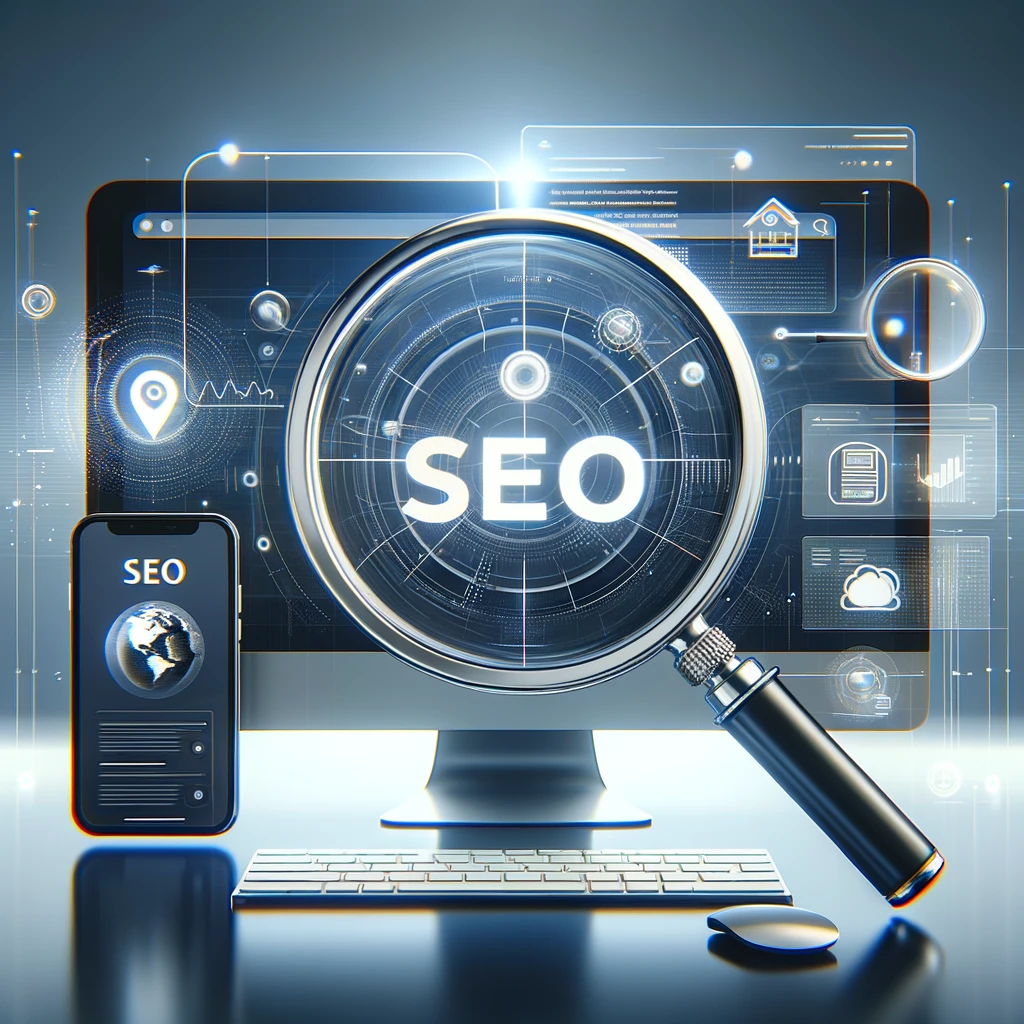Introduction
The dawn of the digital age has ushered in a revolution in how businesses connect with their customers, and at the heart of this transformation is Artificial Intelligence (AI). From analyzing vast datasets to predicting customer behavior, advanced technology is redefining the possibilities within AI digital marketing. This introductory section should not only pique the reader’s interest but also lay the groundwork for the comprehensive exploration of AI tools in digital marketing. Discuss the exponential growth of AI and its timely adoption by marketers around the world, emphasizing its role in driving efficiency, innovation, and success in digital marketing strategies.
AI’s integration into digital marketing isn’t just a trend; it’s a paradigm shift. Marketers are now tasked with navigating this new landscape, where AI tools can automate tasks, provide insights into customer behavior, and personalize marketing messages at scale. The challenge, however, lies in choosing the right tools from a vast and ever-expanding toolbox. This introduction sets the stage for a deep dive into how businesses can effectively select and utilize AI tools to supercharge their digital marketing efforts.
The Revolution in AI Digital Marketing
AI has transformed digital marketing from a guessing game into a science. With capabilities ranging from predictive analytics to natural language processing, AI technologies are enabling marketers to craft strategies that were once beyond imagination. In this section, illustrate how AI has enabled personalized marketing at scale, allowing for the delivery of content and offers that are tailored to individual consumer preferences and behaviors. Highlight examples such as Netflix’s recommendation engine or Amazon’s targeted product suggestions to showcase AI’s impact on consumer engagement and satisfaction.
Moreover, AI’s role in optimizing marketing campaigns through data analysis has been a game-changer. Tools that leverage AI for A/B testing and analytics can significantly improve the efficiency of marketing campaigns, reducing costs and increasing ROI. Discuss the benefits of AI-driven insights in crafting campaigns that resonate with the target audience, emphasizing the competitive edge that AI can provide in the crowded digital marketplace.
Understanding Your Needs
Before diving into the vast array of AI tools available, it’s critical for businesses to understand their unique marketing needs and challenges. This section should guide readers through the process of conducting an audit of their current marketing strategies, identifying gaps where AI can bring value. Encourage readers to consider their objectives, whether it’s increasing engagement, boosting sales, or enhancing customer service, and how AI can help achieve these goals.
Discuss the importance of aligning AI tool selection with business goals and marketing strategies. It’s not about adopting AI for the sake of technology but leveraging it to solve specific challenges and enhance marketing efforts. Provide a framework or checklist for businesses to assess their needs and readiness for AI integration, including technical infrastructure, data availability, and team skills.
Categories of AI Digital Marketing Tools
This section should offer a clear and organized overview of the different categories of AI tools available for digital marketing. Start with analytics tools, highlighting how they can decipher consumer behavior and predict trends. Move on to content creation tools, showcasing how AI can assist in generating engaging content, from blog posts to social media updates.
Next, focus on customer service tools, such as chatbots and virtual assistants, that can provide 24/7 support and personalized interactions at scale. Lastly, discuss automation platforms that can streamline marketing workflows, from email campaigns to social media posting. For each category, offer examples of tools and their specific benefits, helping readers understand how these can fit into their marketing strategies.
Key Considerations for Selecting AI Tools
Selecting the right AI tools involves more than just understanding their capabilities. In this section, delve into the essential factors businesses must consider to make informed decisions. Compatibility with existing systems is crucial; the best AI tool should seamlessly integrate with current marketing platforms and CRM systems. Ease of use is also vital; tools should be accessible to team members with varying levels of technical expertise.
Discuss the importance of scalability, ensuring that the chosen AI tools can grow with the business and handle increasing volumes of data and interactions. Moreover, emphasize the necessity of robust customer support from the tool providers to resolve any issues promptly. Highlight compliance with data protection regulations as a non-negotiable factor, ensuring that the use of AI tools adheres to legal standards and respects customer privacy.
Top Tools for AI Digital Marketing
In this practical section, provide readers with an overview of top AI tools tailored to different aspects of digital marketing. Highlight each tool’s key features and the specific marketing challenges they address. For example, detail how HubSpot’s CRM platform leverages AI for lead scoring and segmentation, or how Salesforce Einstein uses AI to provide predictive analytics and personalized customer journeys.
Include tools like SEMrush for SEO and content marketing, illustrating how AI can uncover keyword opportunities and optimize content for search engines. For each tool, discuss its unique selling points and how it stands out in the market. This section should serve as a resource for readers to discover tools that match their specific needs and objectives.
Integrating AI Tools into Your Strategy
Successfully integrating AI tools into existing marketing strategies requires careful planning and execution. This section should offer actionable strategies for seamless integration, including the importance of setting clear objectives for what the business aims to achieve with AI. Discuss the need for cross-functional collaboration, ensuring that all team members, from marketing to IT, are on board and understand how to use the new tools.
Emphasize the value of training and continuous learning, as AI technologies and capabilities evolve rapidly. Share tips for creating a culture of innovation where team members are encouraged to experiment with AI tools and share their findings. This approach can help businesses leverage AI to its fullest potential, enhancing marketing efforts and driving growth.
Measuring Success and ROI
To justify the investment in AI tools, businesses must be able to measure their impact on marketing objectives. This section should outline effective methods for tracking and analyzing the performance of AI initiatives. Discuss key metrics such as engagement rates, conversion rates, and customer satisfaction scores, and how these can indicate the success of AI integration.
Advise on setting up a system for regular review and adjustment of AI strategies based on performance data. Share examples of how businesses can pivot or tweak their AI approaches if they’re not meeting expectations. This iterative process is essential for maximizing the ROI of AI tools and ensuring they contribute positively to marketing goals.
Future Trends in AI Digital Marketing
The AI landscape is continuously evolving, with new technologies and applications emerging regularly. This forward-looking section should speculate on future trends in AI that could impact digital marketing, such as advances in natural language processing, AI-driven personalization, and the integration of AI with emerging technologies like augmented reality.
Encourage readers to stay informed about new developments in AI and consider how these could be incorporated into their digital marketing strategies. Highlight the importance of adaptability and ongoing education in leveraging AI to maintain a competitive edge in the dynamic digital marketplace.
Conclusion
Conclude the blog by summarizing the key points discussed, reinforcing the transformative power of AI in digital marketing and the critical importance of selecting the right tools. Encourage readers to approach the selection of AI tools with a strategic mindset, considering their specific needs, the capabilities of different tools, and how these can be integrated into their marketing strategies to drive success.
Read more about The Ultimate Guide to AI in Digital Marketing Part 1.
Resources
- HubSpot Blog’s “The Top 20 AI Tools for Marketers”:
- This comprehensive guide offers insights into a variety of AI tools that cater to content creation, campaign assistance, and more. HubSpot’s AI Assistants, for example, can significantly streamline the content creation process by generating SEO-optimized content, blog ideas, outlines, and meta descriptions, seamlessly integrating with your HubSpot tools (HubSpot Blog).
- CareerFoundry’s “The 20 Best AI Tools for Digital Marketing”:
- CareerFoundry highlights several AI tools that are essential for digital marketers, including Brandwatch Influence for influencer marketing, Zapier for task automation, and Drift for AI chatbots. These tools are lauded for their capabilities in streamlining workflows, enhancing influencer marketing strategies, and improving customer service (CareerFoundry).
- Semrush’s “Top AI Tools for Digital Marketing and Automation in 2024”:
- Semrush’s article provides an in-depth look at tools like Craftly for content rewriting, the Semrush SEO Writing Assistant for content optimization, and ContentShake AI for generating SEO-friendly articles. These tools are praised for their ability to assist with content creation, optimization, and strategy planning, making them invaluable for digital marketers aiming to improve their SEO and content marketing efforts (Semrush).


